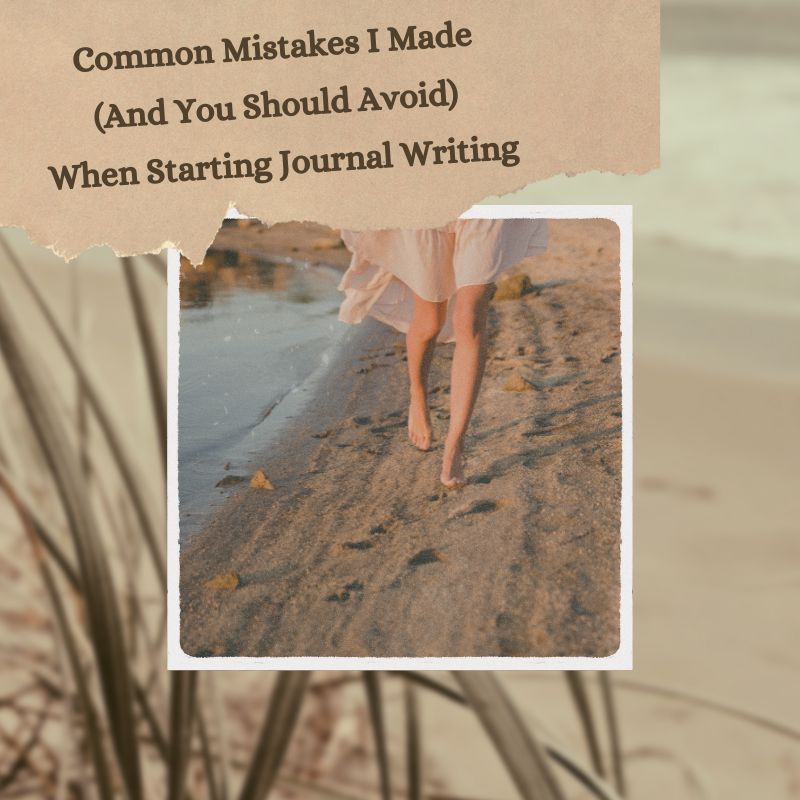Journaling is more than just writing down your thoughts it’s a powerful tool for emotional clarity, self-awareness, and personal growth. In a world where stress and distractions are constant, learning how to journal for emotional clarity and growth can help you stay grounded, process emotions, and create a roadmap for the life you want to lead.
This guide will teach you the art of journaling, what to write about, the best times to journal, and common mistakes to avoid. Plus, we’ll share pro tips and answer the most frequently asked questions to help you succeed.
What is Journaling and Why Does It Matter for Emotional Clarity?
At its core, journaling is the practice of writing down your thoughts, feelings, experiences, and reflections. It’s not about perfect grammar or writing a bestseller—it’s about honesty and self-expression.
When done right, journaling can:
- Reduce stress and anxiety by organizing your thoughts on paper.
- Increase self-awareness by helping you identify patterns and triggers.
- Improve decision-making by clarifying what truly matters to you.
- Boost emotional regulation, making it easier to respond calmly instead of reacting impulsively.
Psychologists recommend journaling as a therapeutic practice because it creates mental space, allowing you to observe your thoughts rather than being overwhelmed by them.
Common Mistakes I Made (And You Should Avoid) When Starting Journal Writing

Before diving in, let’s clear up some common traps beginners fall into:
1. Overthinking and Exaggerating Feelings
“Many beginners believe journaling means writing dramatic, elaborate stories about their feelings. But this often leads to frustration and inauthentic entries. One of the best personal growth tips is to keep your journaling real and raw, not exaggerated.”
2. Writing As If It Is Going To Be Published
Your journal is for YOU. If you write thinking someone else will read it, you’ll censor yourself and lose the true essence of journaling. Give yourself permission to write honestly without judgment.
3. Writing Everything Down
“You don’t need to document every second of your day. Instead, focus on what truly matters your thoughts, emotions, lessons learned, and even how any medications might be affecting your mood or energy.”
4. Copying Journaling Styles That Don’t Suit You
Just because someone loves bullet journaling or morning pages doesn’t mean it will work for you. Experiment and find your personal style ratitude journaling, reflective journaling, or goal-oriented journaling.
5. Unnecessary Spending On Expensive Good-Looking Journals
While a beautiful notebook can be motivating, it’s not a requirement. A simple notebook or even a digital journaling app works perfectly. The key is consistency, not aesthetics.
Figure Out What Kind of Journal You Want to Write In
Before you begin, decide the purpose of your journal. Some common types include:
- Gratitude Journal focusing on positive aspects of your day.
- Reflection Journal analyzing experiences and emotions.
- Goal-Oriented Journal tracking progress toward personal goals.
- Mindfulness Journal: staying present and aware of your thoughts.
What to Write in a Journal for Emotional Clarity and Growth
Not sure where to start? Here are powerful journaling prompts and techniques:
Your Mission and Vision
Start by writing about your life goals and values. Ask yourself:
- What kind of person do I want to become?
- What are my top three priorities in life?
What You Want To Do Today Or Tomorrow
Daily intention-setting helps you stay focused and mindful. For example:
“Today, I will practice patience in difficult situations.”
A Brief Review Of Your Day
Reflect on what happened, what went well, and what could have been better. This helps you learn from experiences and avoid repeating mistakes.
Gratitude
Write down 3 things you’re grateful for every day. Gratitude journaling has been scientifically proven to improve mental health and boost happiness.
Affirmations
Positive affirmations like:
“I am capable of handling challenges with grace.”
These affirmations rewire negative thought patterns.
Forgiveness
If you’re holding onto resentment, journaling about forgiveness can release emotional baggage and bring peace.
When Is the Best Time to Journal?
- Morning Journaling: Great for setting intentions and boosting motivation.
- Night Journaling: Perfect for reflection, processing emotions, and winding down.
- Whenever You Feel Overwhelmed: If emotions feel heavy, grab your journal right then.
The best time is when you can be consistent—whether it’s 10 minutes in the morning or before bed.
Pro Tips for Effective Journaling
- Start Small: 5 minutes a day is better than nothing.
- Use Prompts: If you’re stuck, try questions like “What made me smile today?”
- Be Honest: Write for yourself, not for Instagram.
- Stay Consistent: Make journaling a daily ritual.
- Don’t Judge Your Writing: Spelling, grammar—none of it matters here.
Additional Headings for SEO (Value-Added)
These extra sections enhance your understanding and provide practical tips for mastering the art of journaling for emotional clarity and growth
How Journaling Improves Mental Health and Emotional Regulation
Journaling acts as emotional detox. By putting feelings on paper, you distance yourself from them and gain perspective, reducing stress and anxiety.
Different Journaling Methods for Growth
- Bullet Journaling
- Morning Pages
- Stream-of-Consciousness Writing
- Guided Journaling Apps
Digital Journals vs Paper Journals – Which Is Better?
Paper journals feel personal and distraction-free, while digital journals offer convenience and privacy. The best option? Whichever you’ll stick to.
Final Thoughts
Learning how to journal for emotional clarity and growth is one of the best investments in your mental well-being. Journaling isn’t just about writing it’s about self-discovery, healing, and creating the life you truly desire.
Start today, even if it’s just one sentence. Over time, those sentences will become a story of growth, resilience, and clarity.
Ready to transform your emotional well-being? Start your journaling journey today! For more personal growth tips, visit MindScribes.com.
FAQs
1. How often should I journal for emotional clarity?
Daily journaling works best, but even 3–4 times a week can make a big difference.
2. Can journaling help with anxiety and stress?
Yes! Journaling provides a safe outlet for emotions and reduces overthinking.
3. Do I need special journals or apps?
No. Any notebook or even your phone will do consistency matters more than fancy tools.
4. How long should each journaling session be?
5–15 minutes is enough. The key is to make it manageable and sustainable.
5. What if I don’t know what to write?
Start with prompts like: “What am I feeling right now?” or “What am I grateful for today?”

